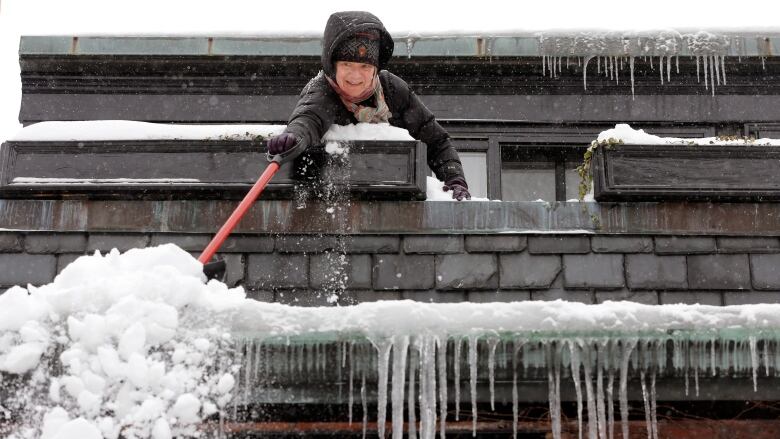Why moderate snowfalls may be worse for the heart

Moderate snowfalls were linked to an increase in hospital admissions for heart attacks and other cardiovascular illnesses, not heavy snowfalls,say researchers who combed through hospital records after Boston was walloped in 2015.
Researchers analyzed data for more than 433,000 adults hospitalized at the city's four largest hospitals from November through April for the years 2010 to 2015.
The study on admissions for cardiovascular diseases, cold-weather related conditions such as frostbite,and falls and injuries was published on Monday in the American Journal of Epidemiology.
Study author Francesca Dominici, the senior associate dean for research and professor of biostatistics at the Harvard T.H. Chan School of Public Health, said she was inspired to study the impact of snowstorms on health after classes were cancelled duringBoston's 2015 extreme winter when a series of storms dumped 110 inches or nearly 281 centimeters of snow.
- Cold deemed deadlier than heat when it comes to weather deaths
- Climate change will make storms nastier but less frequent, study says
"Cardiovascular disease admissions were higher mostly on the moderate snowfall days. This was a snowfall day between 5 and 10 inches. The reason why we believe that there was an effect on cardiovascular disease for the moderate snowfall day but not for the very high snowfall day was because the people, especially the more frail people, when it's really, really cold, they don't go outdoors so they're not exposed."
Dominici said the finding was surprising to the researchers until they talked to colleagues who pointed out it makes sense that when there's a ban on driving during a snowstorm then people don't goto the hospital.
The researchers hypothesize the cardiovascular admissions were related to heart disease from shovelling snow by those who aren't fit, based on previous studies pointing to a shovelling effect on fatal heart attacks after a blizzard.
At the same time, admissions for falls increased by 18 per cent on average for both moderate and low snowfall days.
The findings reinforce advice to the elderly to stay indoors on icy days, Dominici said.
"I also think there could be some intervention at the city level to make sure there aren't these giant ice patches around," such as by salting the sidewalk.
For emergency departments in cities that are often affected by snow, she said the findings should be publicized to help them prepare for the types of admissions that are likely after snowfalls.
Unlike previous studies that used claims data to estimate associations of extreme cold with death rates and hospital admissionsamong the elderly, Dominici and her colleagues analyzed electronic medical records from hospitals for all adults.
They also tried to disentangle the effects of snow from cold temperatures.
The study was funded by the U.S. National Institutes of Health, the Environmental Protection Agency, the Health Effects Institute and the Harold and Duval Bowen Fund.
With files from CBC's Amina Zafar












_(720p).jpg)


 OFFICIAL HD MUSIC VIDEO.jpg)
.jpg)



























































































